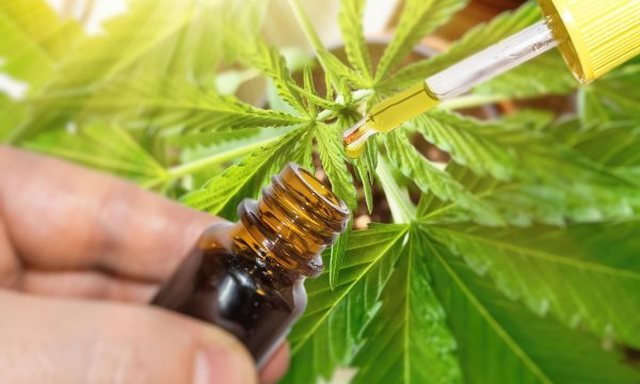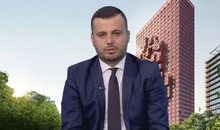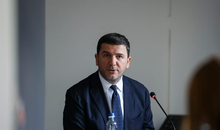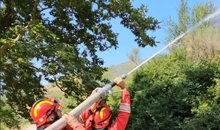
 Flash News
Flash News
Accident at "Shkalla e Tujanit", truck overturns in the middle of the road, driver injured
Vlora by-pass, work delays and cost increases
Milan are expected to give up on the transfer of Granit Xhaka
Inceneratori jashtë funksionit, përfshihet nga flakët fusha e mbetjeve në Elbasan
Accident on the Lezhë-Shëngjin axis, one injured
Cultivation of medical cannabis in Albania, a risk for trafficking by criminal groups

In July 2023, the government led by Prime Minister Edi Rama approved a law allowing the cultivation of medical cannabis and its by-products. This activity, once illegal, will be monitored with strict security measures and regulated by a new government agency.
"The first is the monitoring and control of cannabis that will be cultivated and its by-products/products, for medical and industrial purposes, so we are not talking about all types of cannabis, only those that are licensed and permitted under the law," said the director of the National Agency for Cannabis Control, Linda Pustina, in an interview.
"The second is to assist the licensing commission, for all practices within the framework of product licensing, that is, the licenses that will be granted to companies that will operate in this sector," he added.
According to Pustina, the agency is expected to be the administrator of the database for all licensed companies, as well as provide all information regarding the process.
The global medical cannabis industry was estimated at 13 billion euros in 2023. With its Mediterranean climate and fertile soil, Albania aims to become an important center of medical cannabis production in the region.
But can this industry be properly supervised? Alban Koçi, a lecturer at the Faculty of Law, University of Tirana, has his doubts.
"I think it's not the right moment and, as long as Albania has the biggest traffickers in Europe, at least with what is being revealed day by day in the prosecution's investigations, it will be very difficult," he said.
"So, the first risk is that all criminal groups, the cannabis trafficking they carry out today in the territory of Albania, will tomorrow channel it into the streets, so to speak, legally," added Koçi.
Across the border, North Macedonia legalized medical cannabis in 2016, when the country was led by former conservative Prime Minister Nikola Gruevski and the VMRO-DPMNE party.
Despite increased interest from European companies, the process of distributing licenses for medical cannabis has been criticized for a lack of transparency.
Vasko Magleshov, an investigative journalist and author of an investigation into the cannabis industry, says that the licensing process for medical cannabis in the neighboring country has been accompanied by criticism for a lack of full transparency over the licenses and the companies involved.
“One of the main concerns is the lack of public guidance on what makes a company eligible to receive a license,” he said, adding that there have been reports or allegations that the licensing process has been influenced by political or personal interests.
“There is also a lack of public information about companies applying for licenses,” Magleshov said. “This raises doubts about the integrity of the process ,” he stressed.
Despite the challenges, the cannabis industry in North Macedonia counts over 60 companies, local and international, licensed for the cultivation of medical cannabis.
The Albanian government also believes that medical cannabis could bring an economic boom to the country. But the success of this industry depends on law enforcement, transparency and whether the benefits go to the citizens or just a select few./ BIRN
Latest news








Golem and Qerret without water at the peak of the tourist season
2025-07-01 21:09:32

Euractiv: Italy-Albania migrant deal faces biggest legal challenge yet
2025-07-01 20:53:38
BIRN: Brataj and Fevziu victims of a 'deepfake' on Facebook
2025-07-01 20:44:00

Vlora by-pass, work delays and cost increases
2025-07-01 20:24:29



Milan are expected to give up on the transfer of Granit Xhaka
2025-07-01 19:41:25


The silent but rapid fading of the towers' euphoria
2025-07-01 18:58:07
Donald Trump's daughter says 'goodbye' to June with photos from Vlora
2025-07-01 18:48:47

Tirana vote recount, Alimehmeti: CEC defended manipulation
2025-07-01 18:15:05

Left Flamurtari, striker signs with another Albanian club
2025-07-01 17:43:14
Accident on the Lezhë-Shëngjin axis, one injured
2025-07-01 17:19:35
June temperature records, Italy limits outdoor work
2025-07-01 17:03:15

Meet Kozeta Miliku, named one of the top five scientists in Canada
2025-07-01 16:32:12
"Arsonist" arrested for repeatedly setting fires in Vlora (NAME)
2025-07-01 16:29:45

The ecological integrity of the Vjosa River risks remaining on paper
2025-07-01 16:09:40
Heat Headache/ Causes, Symptoms and Measures You Should Take
2025-07-01 16:01:13
UN: The world must learn to live with heat waves
2025-07-01 15:54:50

Three cars collide in Tirana, one of them catches fire
2025-07-01 15:38:16

Shehu: Whoever doesn't want Berisha, doesn't want the opposition 'war'!
2025-07-01 15:19:20
Berisha requests the OSCE Assembly: Help my nation vote freely
2025-07-01 15:11:46
Be careful with medications: Some of them can harm your sex life
2025-07-01 15:00:32

'Golden Bullet'/ Lawyers leave the courtroom, Altin Ndoc's trial postponed again
2025-07-01 14:44:52
EU changes leadership, Kosovo in a number of places
2025-07-01 14:40:01
Should we drink a lot of water? Experts are surprised: You risk hyponatremia
2025-07-01 14:30:20



Lëpusha beyond Rama's postcards: A village that is being silently abandoned
2025-07-01 13:41:56
Scorching temperatures in France close the Eiffel Tower
2025-07-01 13:29:35
Media: China, Iran and North Korea, a threat to European security
2025-07-01 13:20:12
Albania drops in global index: Less calm, more insecure
2025-07-01 13:09:35
Road collapses, 5 villages in Martanesh risk being isolated
2025-07-01 13:03:04

Këlliçi: Opposition action to be decided in September
2025-07-01 12:48:49
Four tips for coping with the heat wave
2025-07-01 12:38:53
Car hits pedestrian on Transbalkan road
2025-07-01 12:27:09
Authors of 9 robberies, Erjon Sopoti and Abdullah Zyberi arrested
2025-07-01 12:15:56

He abused his minor daughter, this is a 36-year-old man in custody in Fier
2025-07-01 11:50:34
The constitution of the Kosovo Assembly fails for the 40th time
2025-07-01 11:40:08




EU confirms support for the Western Balkans
2025-07-01 10:50:45
Serious in Fier! Father sexually abuses his minor daughter
2025-07-01 10:32:33
One year since the passing of the colossus of Albanian literature, Ismail Kadare
2025-07-01 10:25:26


They supplied the 'spaçators' with drugs, two young men are arrested in Tirana
2025-07-01 09:54:09
Europe is "scorching", how dangerous are high temperatures?
2025-07-01 09:48:56


Nigel Farage in Albania: but why?
2025-07-01 09:13:12
Xama: The "Partizani" dossier is quite weak and without facts!
2025-07-01 09:04:47

Foreign exchange, the rate at which foreign currencies are sold and bought
2025-07-01 08:35:39
Fabricators again warn of factory closures and job cuts
2025-07-01 08:21:30
Horoscope, what do the stars have in store for you today?
2025-07-01 08:08:59
Scorching hot, temperatures reaching 40°C
2025-07-01 07:57:12
Morning Post/ In 2 lines: What mattered yesterday in Albania
2025-07-01 07:42:59
Recount after May 11, Braho: I had no expectations for massive vote trafficking
2025-06-30 22:54:18

Second hearing on the protected areas law, Zhupa: Unconstitutional and dangerous
2025-06-30 22:18:46



Israel-Iran conflict, Bushati: Albanians should be concerned
2025-06-30 21:32:42

Fuga: Journalism in Albania today in severe crisis
2025-06-30 21:07:11
"There is no room for panic"/ Moore: Serbia does not dare to attack Kosovo!
2025-06-30 20:49:53

Temperatures above 40 degrees, France closes nuclear plants and schools
2025-06-30 20:28:42
Lavrov: NATO is risking self-destruction with new military budget
2025-06-30 20:13:54
Turkey against the "Bektashi state" in Albania: Give up this idea!
2025-06-30 20:03:24

Accused of sexual abuse, producer Diddy awaits court decision
2025-06-30 19:40:44


